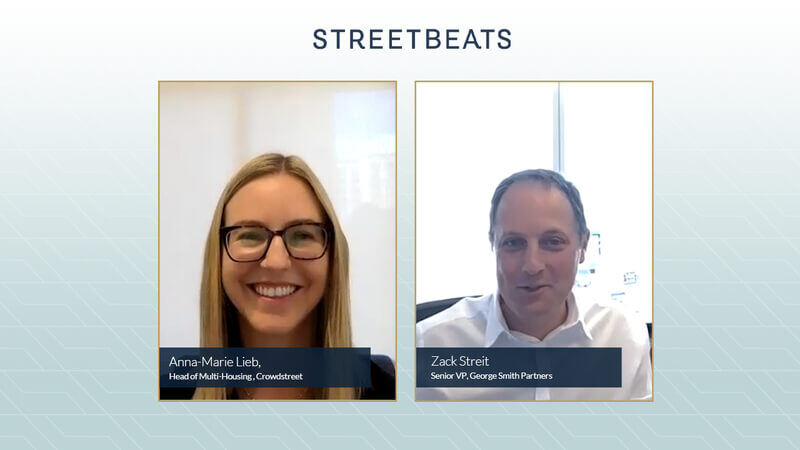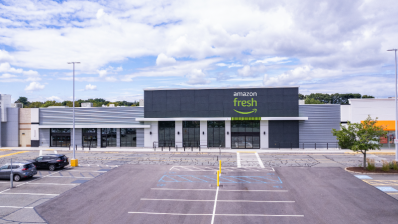
In this episode of StreetBeats, Crowd Street's Anna-Marie Lieb and Zack Streit, Senior VP at George Smith Partners, give an update on the debt markets this week as well as the amount of capital that's ready to be deployed into the real estate markets.
Subscribe to StreetBeats to stay up-to-date with the latest in real estate news.
